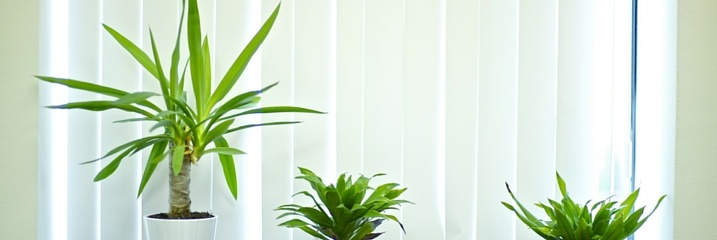If you’re starting to feel that “Monday feeling” drag out for the entire week, then it may be time to re-evaluate your office environment.
That’s because, according to research into workplace wellness and productivity, the most important factor in determining an employee’s ability to focus is their physical environment.
While it may not often be possible to make major office design changes, there are several quick and straightforward improvements you can make that will likely increase levels of focus, productivity, and morale. Here are five simple changes that could make a big difference.
#1 Clean up the clutter
We all have that one colleague whose workspace is a complete disaster — papers everywhere, old coffee mugs all over the place, and leftover lunch plates sprouting curious new lifeforms.
It’s more than just a little irritating, though. A dirty, untidy, and disorganized workspace presents a negative professional image (in a recent survey, 57% of co-workers admitted they judged their colleagues by the cleanliness of their desk), and can be a significant drag on both office morale and productivity.
The answer is to tidy regularly so as to prevent the problem from becoming overwhelming. Try to limit your desk to the bare essentials and avoid using it as a storage space and use shelves or drawers instead. Schedule five minutes at the end of each day to quickly tidy, and 15 minutes at the end of each week.
#2 Introduce plants
A bare office, devoid of pictures, souvenirs, and plants is possibly “the most toxic space you can put a human into” according to psychologists. That’s the conclusion of a paper by researchers at the University of Exeter, who also suggested that the addition of indoor plants could significantly improve productivity.
That study found that when plants were introduced into offices — enough so that every employee could see at least one — employee performance on memory retention and other basic tests improved substantially.
So, allow staff to have plants on their desks and introduce some larger indoor plants to your office. Gardeningknowhow.com suggests Spider plants, rubber plants, and peace lilies for their low maintenance requirements and effectiveness at removing indoor pollutants, like dust.
#3 Eat healthy snacks
So you want happy, healthy, and productive employees? Then provide them with healthy bites to eat. According to one study, almost two-thirds of employees regularly leave the office on coffee and snack runs at least once a day. That study concludes that, in the U.S., those food and drink runs add up to some 2.4 billion hours of lost productivity.
It’s easily solved by providing plentiful snacks in the staff kitchen, though. For relatively little expense, you’ll benefit from employees who feel motivated and cared for, improved informal internal communication (as people gravitate around the snack area), and — done right — healthier and less sluggish team members.
Steer away from offering up snacks like pastries and donuts, which are loaded with refined sugars. Not only are they unhealthy, but employees riding a sugar high followed by a sugar slump are no good for productivity. Try fruits (apples and bananas, filled with tons of valuable nutrients and only reasonable amounts of natural sugar, are good choices), low-sugar granola bars, and low-salt popcorn.
#4 Listen to music
The person at the desk beside you is chattering away on the phone. Across the office, someone is loudly slamming the jammed photocopier. There’s a decibel-defying conference call taking place three doors away but resonating around the room as though it’s next door.
At this rate, headphones or earbuds must look like enticing prospects! Listening to music does more than just block out annoying external noise, though. Research by Dr. Teresa Lesiuk at the University of Miami found that “those who listen to music complete their tasks more quickly and come up with better ideas than those who don’t because the music improves their mood.”
Not all music is equal when it comes to improving focus, however. Loud, erratic, or highly lyrical music might distract you from your work. The primary concentration-boosting benefits of listening to music at work come from instrumental or classical soundtracks (check out the instrumental playlists on streaming services like Spotify, Pandora, iTunes, or Google Play Music for inspiration).
#5 Let there be light!
Office lighting, though rarely thought of as having much effect on productivity, can be an enormously important factor. Why so? There are dozens of problems that can be attributed to poor lighting, from migraines and eye strain to a reduced ability to concentrate.
The problems caused by a minimally-windowed, fluorescent-light-flooded workspace are many. One major reason is that artificial light confuses our body’s natural sense of day and night, making us less able to sleep well at night (and therefore tired during the day).
Abundant natural light is the best solution. But that’s not always an option, particularly when office space is at a premium. So, in circumstances where you can’t open up your windows, focus on providing indirect, very bright lighting. Choose LED light bulbs that are at least 800 lumens and have them face upwards toward the ceiling. Ideally, individual desks will have direct light sources for focused work, such as reading, as well.







